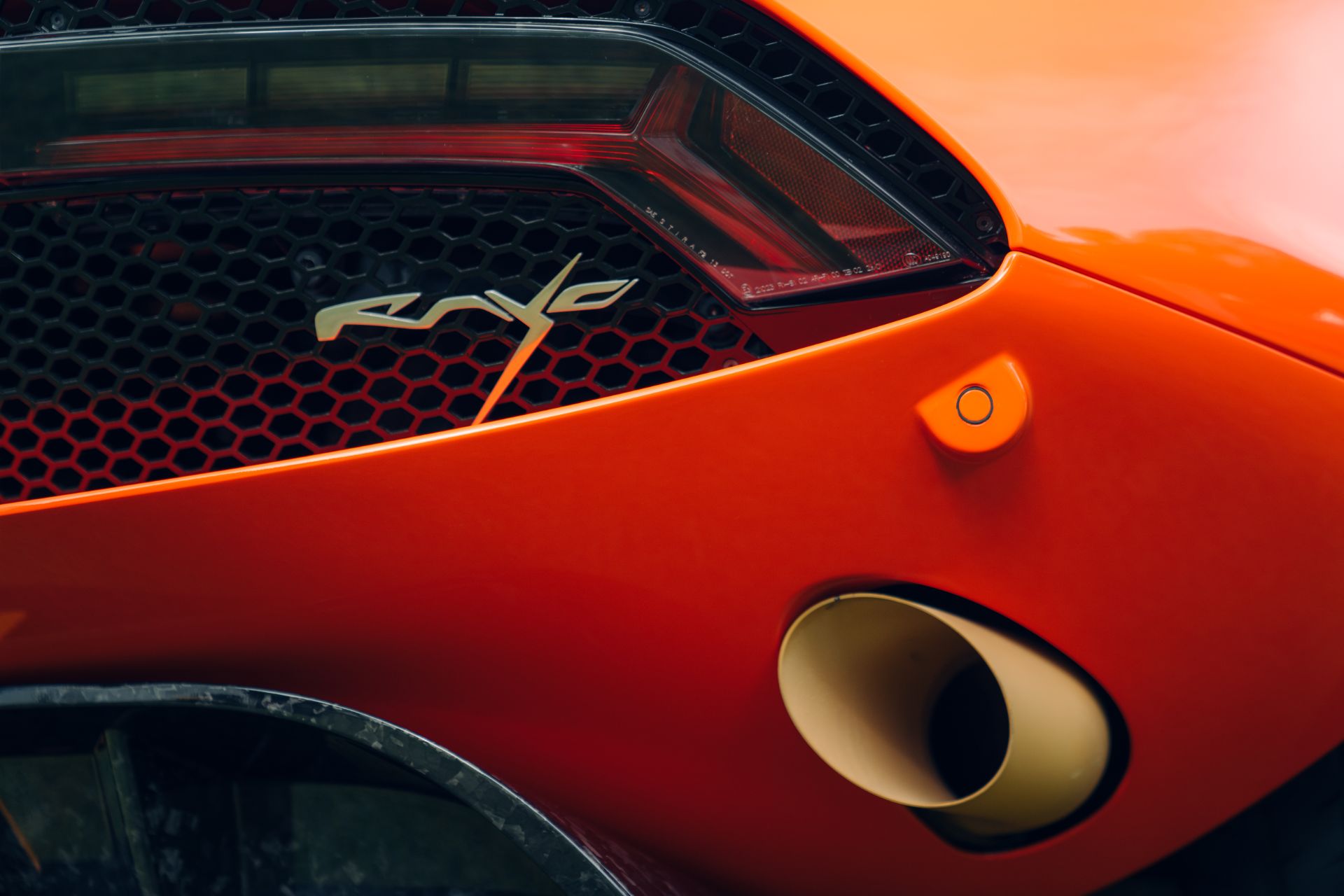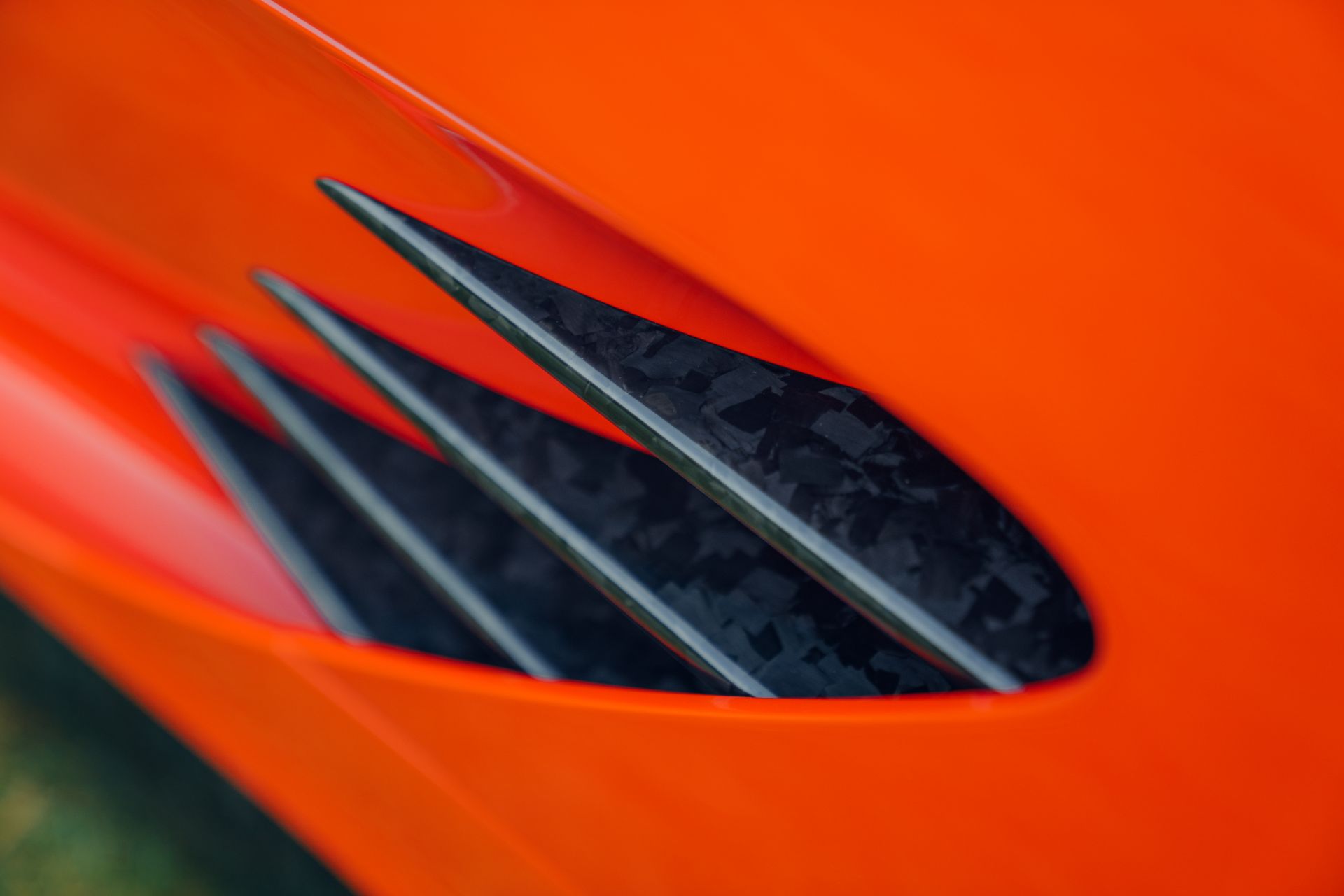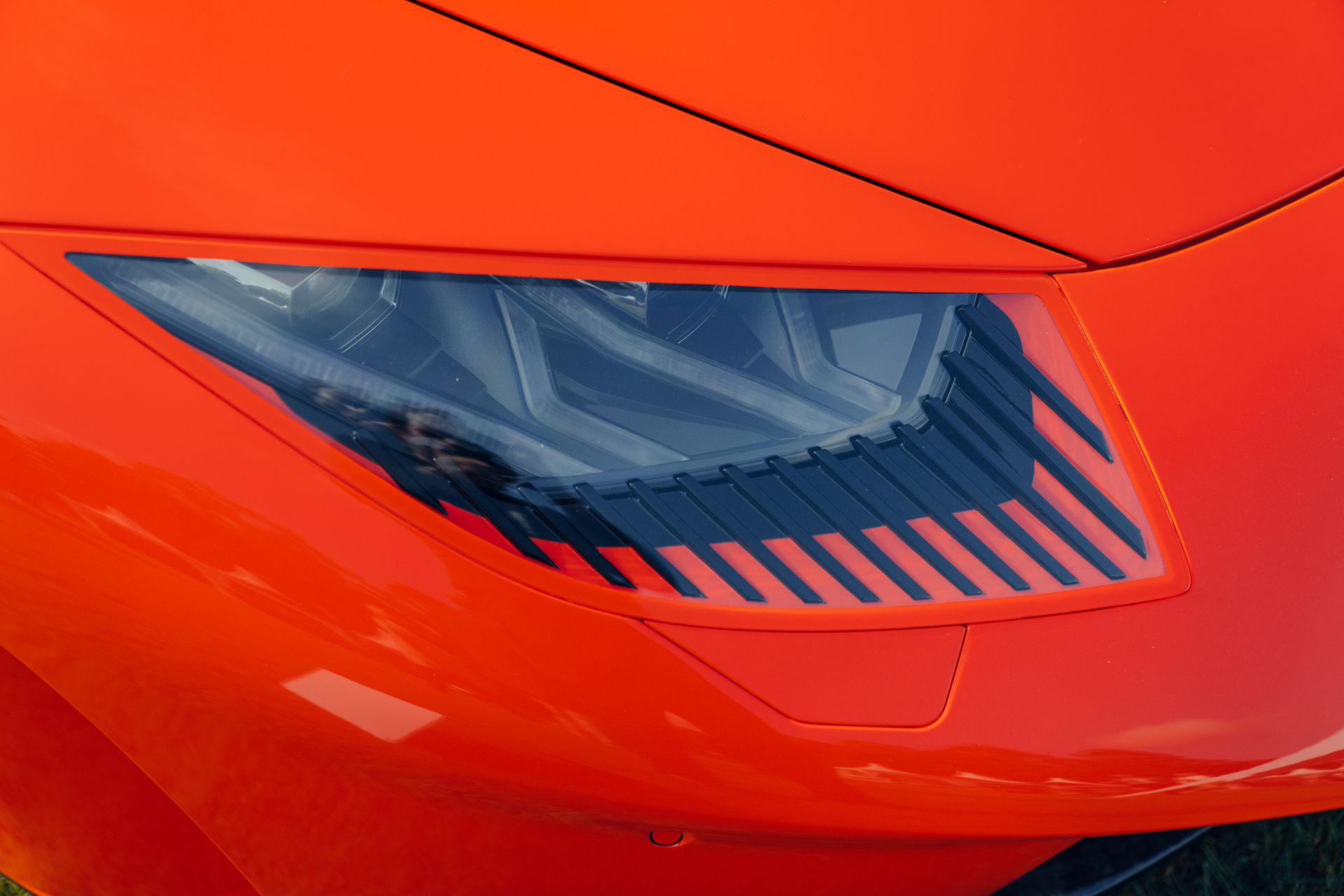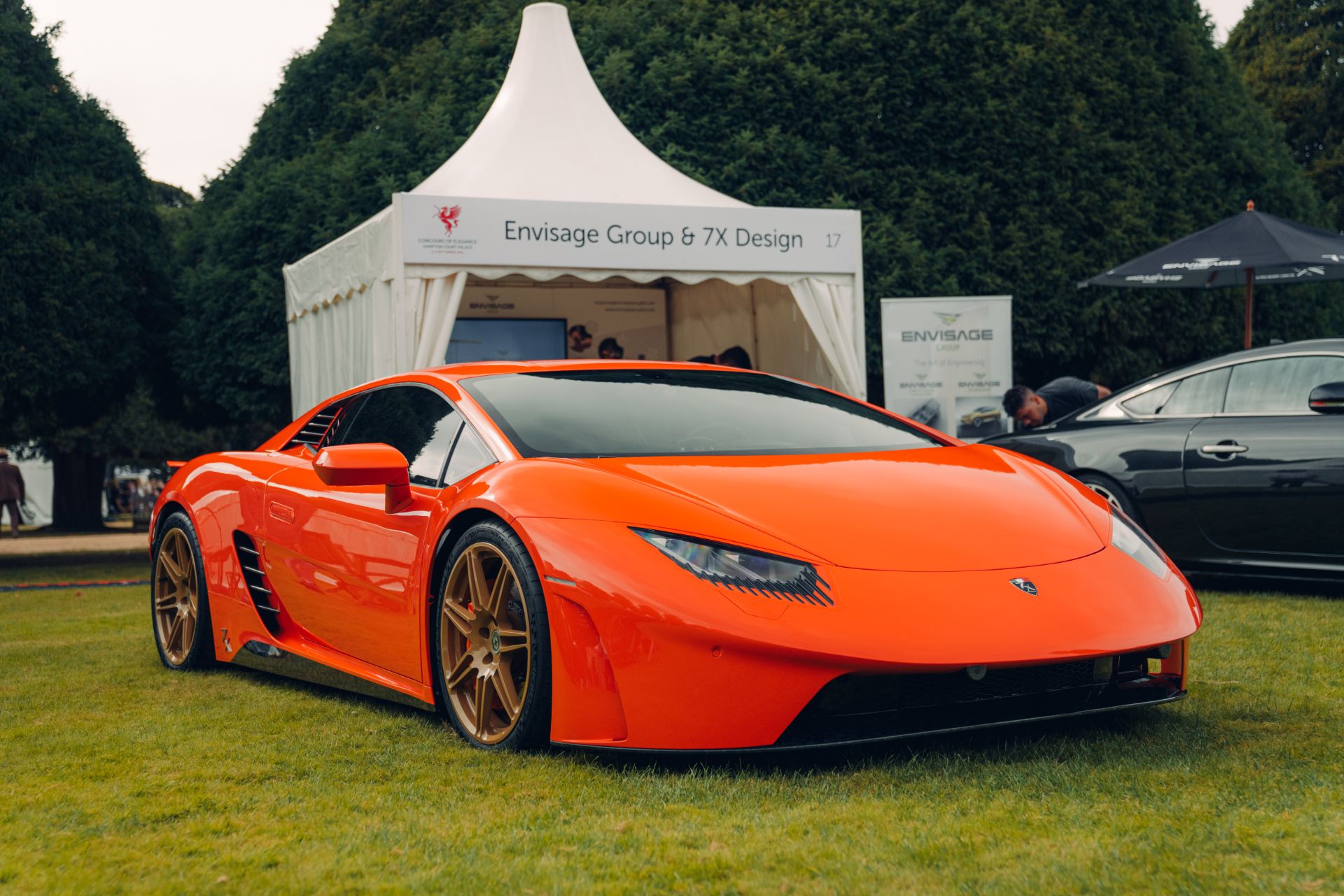Over the past few years, there has been a spike in the coachbuilding business with ultra-limited edition exotics appearing more often than usual. A company called 7X Design created a one-off hypercar based on a heavily tuned Lamborghini Huracan.
The Rayo, as they call it, was manufactured by Coventry-based Envisage Group and premiered today at the Concours of Elegance at Hampton Court in England.
The vehicle shares its underpinnings with the Lamborghini Huracan LP 610-4, but it features a fully redesigned body made of carbon fiber. The only body pannels shared with the Huracan are the greenhouse, headlights, taillights, and mirrors, since everything else is new.
The nose has been significantly extended protruding more than the splitter, while eyelashes have been added below the headlights under custom transparent covers, possibly inspired by the legendary Miura. On its profile, we find larger lower intakes while the tail is also longer featuring a large diffuser and a pair of fins instead of a spoiler. 7X Design claims that the changes have resulted in a drag coefficiency of 0.279 cd, over the standard car’s 0.39 cd.
Crazy Amounts Of Power From A Mad Twin-Turbo V10
The heavily modified twin-turbo mid-mounted 5.2-liter V10 allegedly produces 1,874 hp ( 1,397 kW / 1,900 PS) which is a substantial increase over the stock 602 hp (449 kW / 610 PS). The company went as far as announcing a target top speed of 300 mph (482.8 km/h) which is a bold claim for a non-established automaker.
There are no pictures of the interior but we guess it would be heavily shared with the Huracan, featuring unique upholstery to match the Sport Orange exterior paint and the golden accents found on the alloy wheels and the tailpipes.
7X Design didn’t announce pricing for the one-off Rayo, while Envisage Group was happy to showcase their coachbuilding skills in providing OEM-like fit and finish to this project. We guess that the Rayo was designed and manufactured after a special order. If this is the case, then the owner must have deep pockets for covering the cost for the development of the all-new carbon-fiber bodywork.















